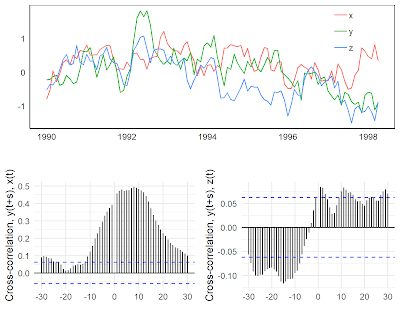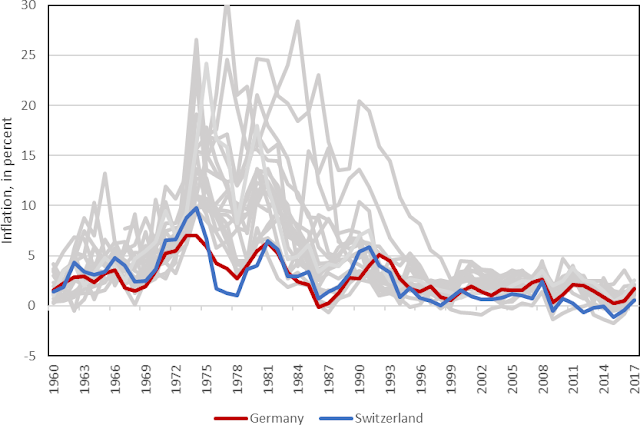Are deflation and wage rigidities harmful? Evidence from a natural experiment
This article is based on an IRENE Working Paper and appeared on 9 February 2021 in German on Ökonomenstimme . Many economists consider deflation, a persistent decline in the general level of prices, to be harmful for at least three reasons. First, consumers may delay important purchases in anticipation of lower prices. Second, falling prices and nominal revenues may make it more difficult to meet nominal debt obligations, causing debtors to default. Third, if workers resist nominal wage cuts, firms may resort to layoffs to cut costs when their nominal revenues fall. Most central banks aim for a clearly positive inflation target, partly as an insurance against disinflationary shocks. During the COVID-19 pandemic inflation has fallen in most OECD countries (on average by 0.5 percentage points). Therefore, the spectre of deflation has re-emerged, which is reflected in rapid interest rate cuts and large-scale asset purchase programs. There is little research on the ...



